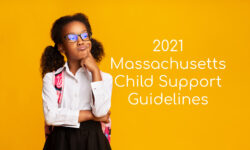By: Julia Rodgers
Children who were born in a two-parent household, where both of their biological (or adoptive) parents were physically present, have formed an opinion about what they believe to be a solid family structure. This family model (that is now lodged in the mind of the child) is what they consider their support system. Children rely on this system and family structure for financial and emotional support, as well as ongoing nurturing, stability, love, and a feeling of belonging and acceptance. When children are born into this type of structure, they become accustomed to their structure and environment, as they have relied on it for years. But when this is torn apart by divorce, children go through a wide variety of emotional traumas and setbacks such as anger, feelings of abandonment, loneliness, and a wide array of other psychological/emotional issues. So just how does a parent help their child adjust to a divorce?
According to Meri Wallace, LCSW, parenting expert and family therapist, divorce is not easy for parents or for their children. Because the process of divorce affects everyone around the family, the children often need a bit of extra help in adjusting. They may also need help coping with what the divorce has done to their life and family structure as they currently know it. In her article titled ‘8 Strategies for Helping Kids Adjust to a Divorce’, Wallace explains the importance of good communication during the divorce process, which is key in helping children adjust.
While no one family structure is right or wrong in today’s society, ChildTrends has published some stats concerning children that live with two parents, (which could be either their biological or their adoptive parents). Statistically these children report fewer behavioral problems, better overall health, and better access to health care than children who are a part of other forms of family structures. The stability that comes with a structured family spans across a variety of aspects of a child’s life. This includes emotional, financial, educational, social, spiritual and overall psychological stability. But when a divorce takes place, as it does in 40 – 50% of marriages (according to the American Psychological Association), each of these areas is potentially compromised in some form or another.
Adjusting to a divorce means transitioning into a life that most children likely have not experienced before. This may take long-term care and nurturing, or short-term counseling and other support efforts to address and correct its impact. Nevertheless, children do need help adjusting to a divorce in order to minimize these and other factors.
In an article written by Research Assistant Kristi Tanner and edited by Stephen F. Duncan, Ph.D. (professor at the School of Family Life, Brigham Young University), titled ‘Forever Families’, several helpful tips are given to show parents how to best help their children adjust to life during and after a divorce.
Avoid Abrupt Disruptions
Avoiding abrupt disruptions allows you to maintain a more stable routine for your child. This helps them feel more secure when their environments contain predictability and consistency. It also creates a sense of normalcy in their lives during a divorce.
Other activities also help children better adjust to divorce. Some examples include:
- Keeping children in the same school and in the same neighborhood
- Continuing the same bedtime rituals
- Continuing to celebrate birthday parties and holidays as normal
Continuing to allow children to participate in activities that they are familiar with softens the blow a bit and makes it easier to adjust to divorce.
Provide Children with the Reassurance that the Divorce is Not Their Fault
Reassuring children that the divorce is not their fault and that both parents still love them helps remove children from a wide range of emotional and psychological problems. When children are not reassured that their parent’s divorce is not their fault, they may begin to shift their thinking to other conclusions and respond accordingly. Children may begin to act out, or have more outbursts than normal without this reassurance.
Additionally, children should not be exposed to environments where they can overhear conversations about the divorce. This also makes children feel responsible and possibly misinterpret what’s actually being said, according to Tanner.
Children are egocentric. As a result, they tend to believe that the divorce was brought about because of their behavior. Children need to know that the decision for the divorce was solely based on the parent’s relationship and not the child’s behavior, explains Wallace.
Allow Children to Share and Address Their Feelings
Depending on the age and the maturity of the child, he/she could react in a variety of different ways to your divorce. A child may not understand what they are feeling, or why they are feeling a certain way. But the threat of divorce can often cause them to wrestle with feelings of sadness, rejection, fear, guilt, loneliness, or anger. It is during these times that feelings should be addressed. Children should be allowed to freely communicate what they are feeling by talking about their emotions with you and/or a therapist. Wallace suggest that explaining to children that it's natural to feel sad or angry about the divorce could let them know that they don’t have to deal with it alone.
Children may communicate in other way as well, such through drawing, painting, or talking with their teacher, counselor, grandparent, supportive family member or other responsible party. They should be able to freely express their emotions without the feeling of fear.
Children will need time to process these emotions while adjusting to their new lifestyle and to the new set of circumstances that they will be faced with.
Both Parents Should Remain Active and Involved in the Child's Life
Children adjust better to divorce when they can remain involved with both parents. When divorce results in shared custody of the children and the parents can interact with each other in a rational and civilized way, children can accept divorce a lot better than they would in high conflict environments.
Parents should make it a point not to disagree about areas that involve the children. They should be agreeable in areas such as discipline and setting boundaries, ensuring that the children continue their normal household chores, keeping their grades up at school and so forth. This will assist children with maintaining some form of order and structure to their lives even though their parents are going through a divorce. This will help them to better sustain themselves emotionally and psychologically.
Avoid Putting Your Children in the Middle
When children are put in the middle of arguments or other differences between parents, they feel that there is a need to pick sides, when what they really want to do is love both parents, and maintain a relationship with each of them without feeling guilty.
According to Wallace, going through a divorce is a challenge for everyone involved, and both the parents and the children must make the necessary adjustments to move on. As long as the children feel loved and cared for by both parents and have a calm, stable and nurturing environment, they can rise above the trauma of divorce and make the adjustments needed to move on as their lives begin to normalize.
To speak with a lawyer about divorce or other family law matter, contact Mavrides Law in Boston, Newton, or Quincy, MA. To schedule an initial consultation, call 617-723-9900 or contact the firm at info@mavrideslaw.com







